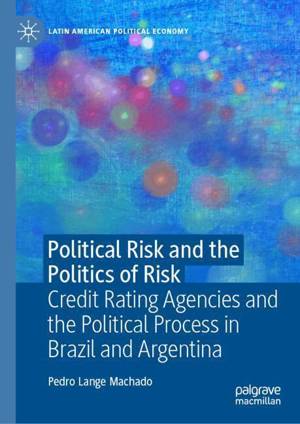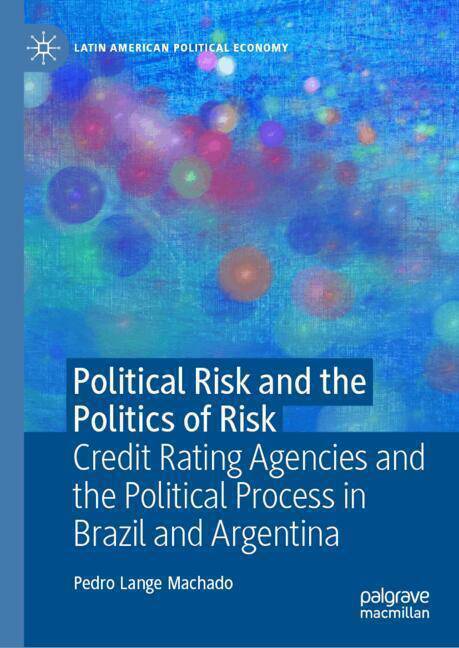
Je cadeautjes zeker op tijd in huis hebben voor de feestdagen? Kom langs in onze winkels en vind het perfecte geschenk!
- Afhalen na 1 uur in een winkel met voorraad
- Gratis thuislevering in België vanaf € 30
- Ruim aanbod met 7 miljoen producten
Je cadeautjes zeker op tijd in huis hebben voor de feestdagen? Kom langs in onze winkels en vind het perfecte geschenk!
- Afhalen na 1 uur in een winkel met voorraad
- Gratis thuislevering in België vanaf € 30
- Ruim aanbod met 7 miljoen producten
Zoeken
Political Risk and the Politics of Risk
Credit Rating Agencies and the Political Process in Brazil and Argentina
Pedro Lange Machado
€ 198,45
+ 396 punten
Omschrijving
This book provides a critical analysis of how credit rating agencies engage with the political and economic dynamics of developing countries. Focusing on Brazil and Argentina, it demonstrates how S&P Global, Moody's Investor Service, and Fitch Ratings--the "Big Three"--employ a politics of risk that seeks to advance the interests of global financial markets while interacting with domestic governance processes. Drawing on underexplored materials such as sovereign rating reports and press releases, this book examines how these agencies deploy their evaluations and public statements as instruments of this politics of risk. Their actions respond to the political risk conditions they identify, which are shaped by factors such as government ideology and shifts in the international context. Through detailed case studies of Brazil and Argentina, this book shows how credit rating agencies become part of wider political disputes over economic policy and governance in the Global South. Bringing together key debates in International Political Economy, "Political Risk and the Politics of Risk" sheds light on the intersections of financialization, neoliberalism, and the tensions between financial globalization and democratic governance. By revisiting recent political and economic developments in two of Latin America's largest economies, this book fills a crucial gap in the literature and offers fresh insights into the often-overlooked role of credit rating agencies in contemporary global capitalism. This book will be of interest to scholars, students, and practitioners in International Political Economy, Political Science, Development Studies, and Latin American studies, as well as those seeking to understand the complex relationships between finance, politics, and power in emerging economies.
Specificaties
Betrokkenen
- Auteur(s):
- Uitgeverij:
Inhoud
- Aantal bladzijden:
- 293
- Taal:
- Engels
- Reeks:
Eigenschappen
- Productcode (EAN):
- 9783031903588
- Verschijningsdatum:
- 7/08/2025
- Uitvoering:
- Hardcover
- Formaat:
- Genaaid
- Afmetingen:
- 148 mm x 210 mm
- Gewicht:
- 530 g

Alleen bij Standaard Boekhandel
+ 396 punten op je klantenkaart van Standaard Boekhandel
Beoordelingen
We publiceren alleen reviews die voldoen aan de voorwaarden voor reviews. Bekijk onze voorwaarden voor reviews.









